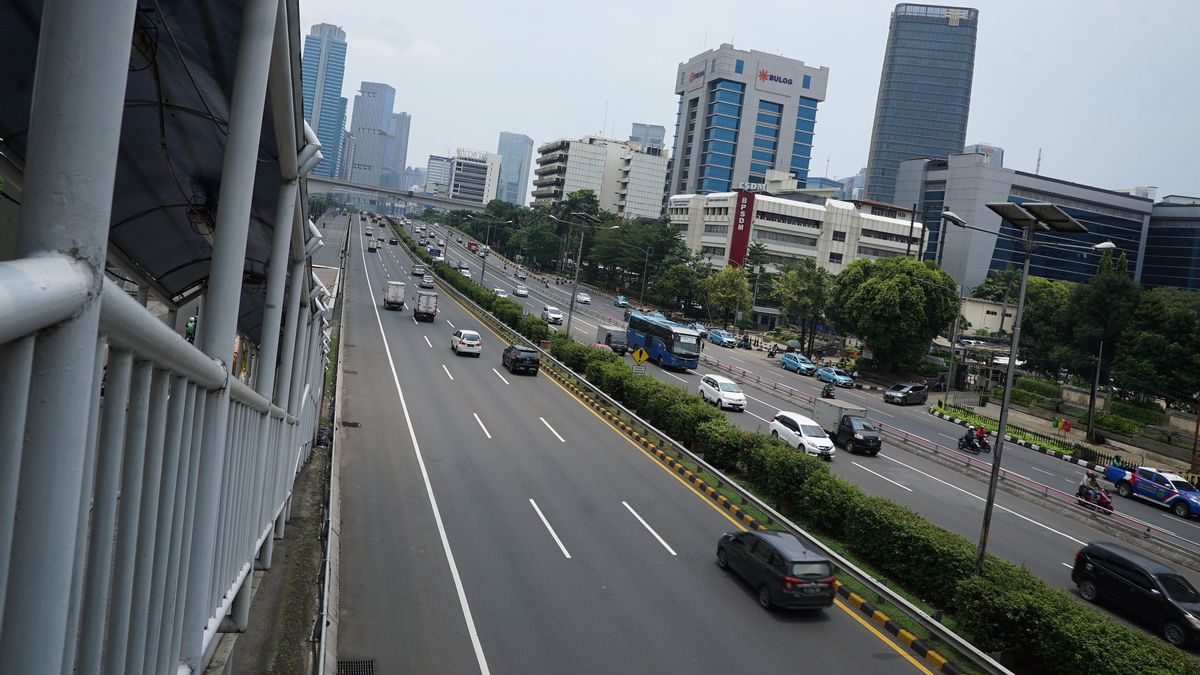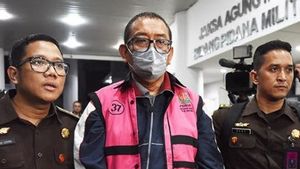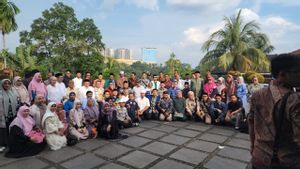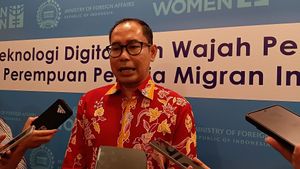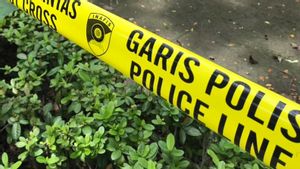JAKARTA - The ban on going home to residents is officially valid today, Friday, April 24. Arterial road access in Jabodetabek today, or the first day of Ramadan, is closed. Thus, residents cannot leave Jabodetabek and go out of town using private vehicles, and vice versa.
Head of Traffic Corps Ops (Korlantas) Polri Kombes Pol Benyamin confirmed this. The closure of arterial roads at the Jabodetabek border is carried out to prevent the transmission of COVID-19.
"It is true, residents outside Jabodetabek cannot enter Jabodetabek, and vice versa," said Benyamin when contacted, Thursday, April 23 evening.
This restriction policy also applies to toll roads. Private vehicles are prohibited from entering and exiting the Jakarta-Cikampek Elevated II toll road because access is closed. Tolls can only be used to mobilize vehicles in the Greater Jakarta area.
Separately, the Director General of Land Transportation of the Ministry of Transportation Budi Setiyadi stated that there are check points from the ranks of the National Police, the TNI, and the Transportation Service in the Jabodetabek border area, both arterial (national) roads and access to the Jakarta-Cikampek toll road.
In the checkpoint area, all private vehicles with black plates, whether cars or motorbikes, are not allowed to go in and out from today. However, there is one special dynamic in the movement of the road section between Bekasi and Karawang.
"There are factory employees whose movements are from Bekasi to Karawang and vice versa. The dynamics are left to the police to determine in the field. Later, the road blockage will not be rigid. There is also (leeway for those who have to pass)," he said.
However, since the announcement of the ban on going home yesterday, many vehicles have already left for Indramayu. "But, now the toll roads, national, provincial roads will be closed by the local police. There are only a few that are opened and supervised," said Budi.
Previously, President Joko Widodo made a decision to prohibit people from returning home to prevent the spread of COVID-19 in various regions.
Acting Minister of Transportation (Menhub) who is concurrently the Coordinating Minister (Menko) of Maritime and Investment Luhut Binsar Pandjaitan said that this ban will take effect on April 24.
"The ban on going home will be effective starting from Friday, April 24, 2020. There are sanctions, but for the application of sanctions that have been prepared, they will be effective starting May 7," said Luhut.
The homecoming ban is enforced for the Greater Jakarta area and other areas that are included in the Large-Scale Social Restrictions (PSBB), as well as the red zone for the spread of COVID-19. Meanwhile, the implementation, said Luhut, will be regulated by the regional government.
"The ban on going home will not allow the traffic of people to go out and enter the area, especially Jabodetabek. However, logistics is still justified (entry), it is still permissible for the flow of people inside Jabodetabek or what is known as agglomeration," he said.
Spokesperson for the Ministry of Transportation, Adita Irawati, stated that officers from several related agencies would take action against offenders who were receptive to going home using two methods.
The first action was carried out in a persuasive manner. Meanwhile, the second way is by giving fines to violators. Persuasive action will be carried out for 2 weeks. In its application, officers who are prepared at various points will provide an appeal to return to the origin of the trip.
"The initial stage of implementation, the government will prioritize persuasive methods. In the first stage, namely on April 24 to May 7, those who violate will be directed to return to their origin of travel," said Adita.
Meanwhile, the second method will be applied for 3 weeks. In this period, the officer will give sanctions in the form of fines to violators. However, Adita did not specify the rules on which this fine was imposed.
"Meanwhile, in the second stage, namely 7-31 May 2020 or until the expiration of the regulations, those who violate in addition to being asked to return to the origin of the trip will also be subject to sanctions in accordance with applicable laws, including fines," said Adita.
This prohibition is exempted for the transportation of logistics or basic necessities and vehicles for transporting drugs, vehicles for transporting officers, vehicles for fire engines, ambulances, and hearses.
The English, Chinese, Japanese, Arabic, and French versions are automatically generated by the AI. So there may still be inaccuracies in translating, please always see Indonesian as our main language. (system supported by DigitalSiber.id)
